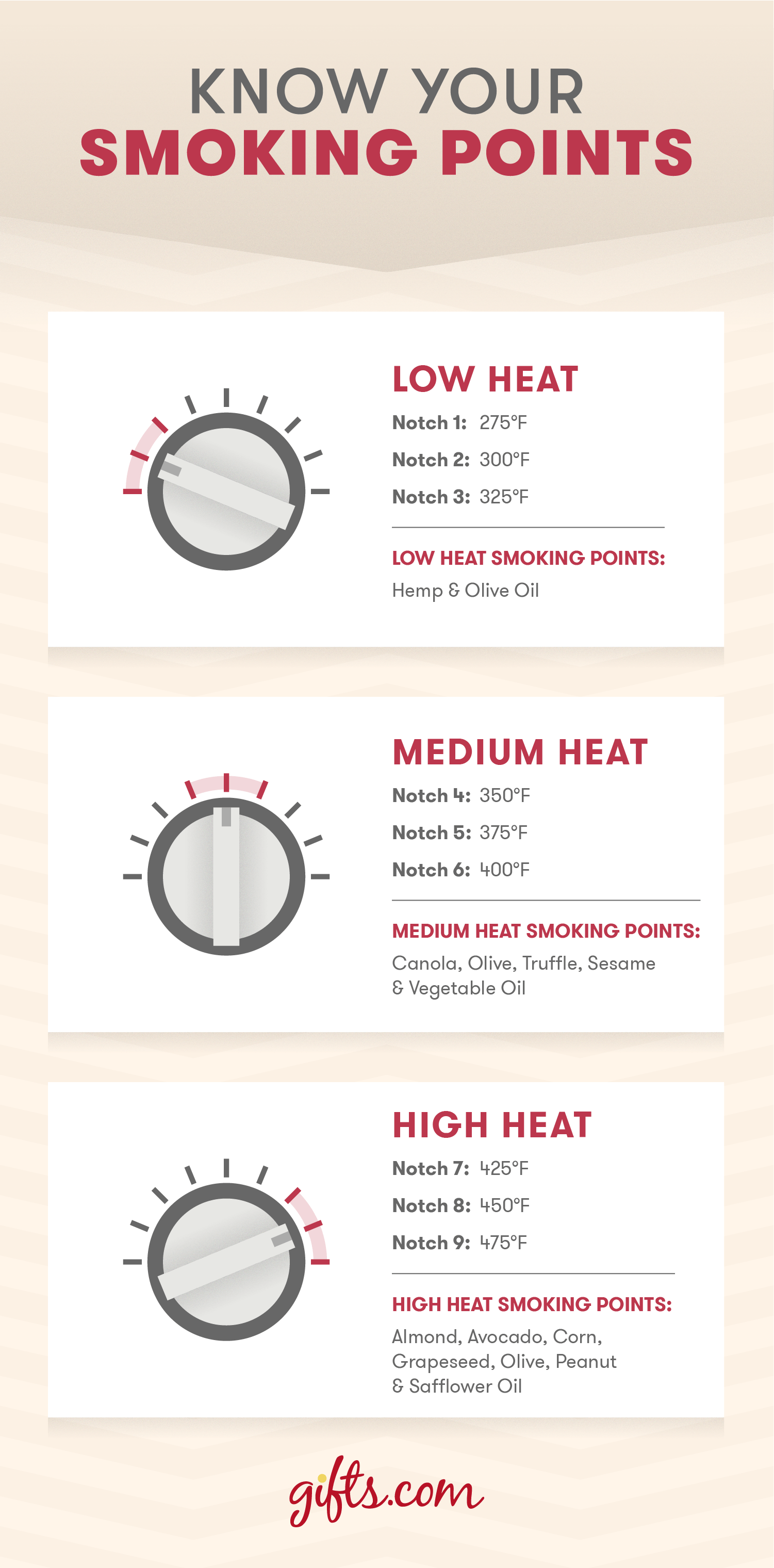The 14 Best Cooking Oils for Every Situation
The correct cooking oil can make all of the difference when preparing a meal. The oil that you use will have a huge effect on the outcome of your dish. Every oil has its own flavor profile that meshes well with different types of food.
The visual below contains everything that you need to pick the best cooking oil for your situation! But first, learn about the important attributes of cooking oils including popular oils like:
Avocado oilCanola oilCoconut oilOlive oilPeanut oilVegetable oilSmoke Point
An oils smoke point may not be on your radar, but it should. If you use an oil and heat it past its smoke point it will create smoke and make your food taste burnt. Oils with high smoke points are advantageous because you are able to use them at low or high heat.

Oil Processing
How cooking oil is processed impacts its taste and health benefits. Higher quality oils are unrefined and, as a result, have higher smoke points. Make a more informed decision and look for these quality indicators.
Extra virgin means that the olive oil was obtained in the first squeeze. Virgin means that the oil was extracted after two squeezes. Extra virgin olive oil has to meet strict requirements when it comes to taste and chemical standards.Cold pressed oils are made in conditions that do not exceed 120?H to ensure that they retain their flavor and health benefits. Seed, nuts or fruits are pressed and ground to extract the oil. These oils are better for you and better tasting, but they are more delicate and should be stored in the fridge. They will likely cost more.Expellar pressed oils use a similar process as cold pressed oils, though the oil is processed at higher heat. It is a second choice to cold pressed, and is better than refined oils.Refined oils are extracted using chemicals or very high heat. This process yields a high amount of oil making it cheaper. However, the oil loses many of its health benefits and flavor nuances through this process.Unrefined oils are extracted through low-heat processing and are not bleached. Cold and expellar pressed oils are examples of unrefined oils.Storage
Should you refrigerate your cooking oils or put them on the counter? How you store your cooking oil can have an effect on its health benefits as well as its shelf life. Seed, nut and fish oils contain polyunsaturated fatty acids (PUFAs) that make them susceptible to oxidation.
To prevent oxidation, it is best to keep certain oils in the fridge. They may become cloudy in the cool temperature, but they will return to their normal state at room temperature. For oils stored at room temperature, make sure that they are kept in a cool, dark place and that the lid is secured tightly.
The bottom line is that oil storage depends in the type of oil and the process that was used to make it. The oil process has an effect on the shelf life because the healthier, more natural oils (per each oil type) dont last as long.
Below, weve gathered all of the information you need to pick the cooking oil best suited for your needs including flavor, what to use it for, smoke point, benefits, storage and shelf life.

Hopefully this visual helps you pick the best cooking oil for your dish, whether youre looking for something flavorless or savory. Remember that cooking oils vary from brand to brand, so make sure to read the labels as you select your oil.
Within each of the oil categories, higher quality will result in a higher smoking point and greater versatility, so choose wisely. Proper kitchen storage will greatly improve the shelf life, so store the oil away and leave the countertop space to your kitchen decor. Dont forget to share this with your friends to help them improve their dishes and avoid a cooking oil snafu!

